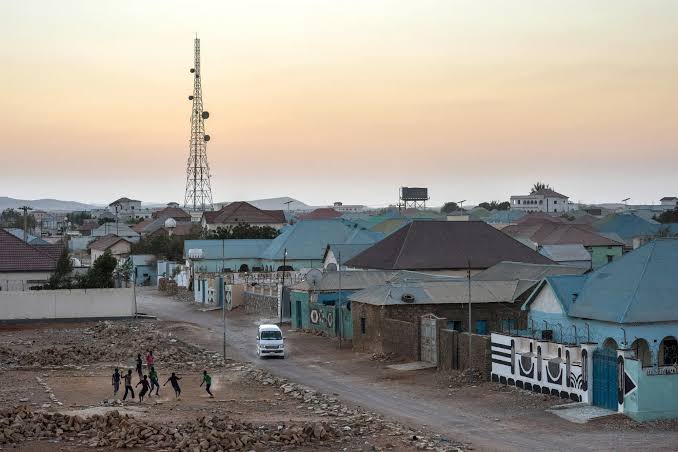Facebook Twitter Instagram Somali Magazine - People's Magazine
Puntland authorities have intensified their crackdown on illegal immigration following reports that foreign nationals are allegedly joining ISIS-Somalia. President Said Abdullahi Deni has ordered strict enforcement of immigration laws and promised new regulations to further control the entry of foreigners into the region.
This development comes as Puntland continues its ongoing battle against ISIS-linked militants in the Al-Miskaat Mountains of the Bari region. The regional government has ramped up efforts to dismantle insurgent strongholds while simultaneously expelling undocumented migrants who could pose a security risk.
Despite these measures, the influx of undocumented migrants—primarily from Ethiopia—has not slowed. Many of them arrive in Puntland’s cities on foot, driven by economic hardship and the hope of reaching Gulf nations or other parts of Somalia. The region remains a significant transit hub for migrants seeking better opportunities, but the rise in human smuggling has become a growing concern for authorities.
Last month, Puntland authorities deported approximately 1,000 undocumented Ethiopians from Garowe, the regional capital, as part of a broader initiative to tighten immigration control. The deportations have sparked debate over the region’s approach to managing migration, with some human rights advocates raising concerns over the treatment of migrants and their forced removal.
In addition to immigration enforcement, Puntland’s administration has been actively engaged in military operations to root out ISIS fighters hiding in the region’s remote mountainous areas. The Al-Miskaat Mountains have long served as a base for militant groups seeking refuge from Somali and international counterterrorism efforts. Puntland’s security forces, supported by international partners, have launched multiple offensives to weaken ISIS-Somalia’s operational capacity.
President Deni’s recent directives emphasize the need for coordinated action between security agencies and immigration officials to prevent foreign fighters from entering Puntland. The administration is expected to introduce new legal measures aimed at tightening border security and curbing human trafficking networks.
While Puntland’s efforts reflect its commitment to maintaining security, the broader challenge of migration persists. Many migrants passing through the region are fleeing conflict, drought, and economic hardship in Ethiopia and other neighboring countries. The growing reliance on human smugglers to navigate these dangerous routes puts them at further risk of exploitation and violence.
As Puntland continues its deportation efforts, regional and international stakeholders will be closely monitoring the situation. The intersection of migration, security, and counterterrorism efforts underscores the complexity of the issue, raising questions about how best to balance border control with humanitarian considerations.

